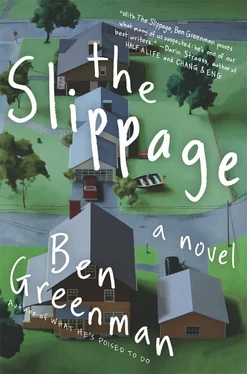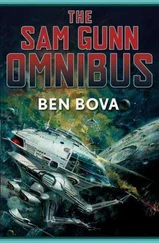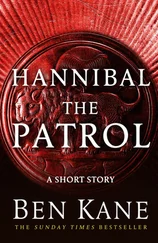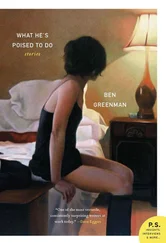How else have you changed as a person, and how has it changed you as a writer?
When I published my first book, I was just recently married. I had no children. Now I’ve been married more than a decade and I have two children. Somewhere along the way, I crossed an invisible line that made those things more important than books. Or at least more important than what happens to a book once it’s published. At times, I would agonize over every little detail of a book’s publication and reception. Now, it seems like a somewhat arbitrary process that shouldn’t really be overthought, because it’s not purely predictable and not an enjoyable source of speculation.
How do you handle reviews?
At first, I read them all. Now, I try to avoid them all. I know lots of reviewers. I have worked as a reviewer. I respect the profession and think it’s vital to the future of literature that people continue to have conversations about books: what works, what doesn’t, why certain trends intensify while others wane. But I’m not sure it’s vital for the future of authors. More specifically: investing too much in reviews can be fatal for authors.
You have written a wide variety of kinds of books, from a collection of experimental short stories ( Superbad ) to a novel about a funk-rock star ( Please Step Back ). Do you have a mental list of other kinds of books you want to write but haven’t yet?
Sure. A political novel, a crime novel, a purely comic novel, a form of scripture, a novel in verse, a single-word novel, a memoir of a word, a travel book about imaginary places. 
Plotting a Point
WHEN I WAS YOUNG, I went to see an author read at a bookstore. He was older, though probably not as old as I am now. He was not exactly famous, but he had done good work for years. He was proud of what he had achieved, and rightly so. I sat on an uncomfortable chair with two dozen other youngish people and admired his reading for the clarity of vision, the lack of histrionics, and the evident pleasure he took in his sentences. He was not self-satisfied. He was not foolish. He did not talk about things like advances or sales. He was a good role model for a young writer.
Afterward, the audience asked questions. Two of them have remained with me. The second, I’ll talk about later. The first came from a young woman in the crowd who stood to ask it. She asked the writer why he wrote at all. The audience laughed, but it wasn’t a combative question. I think she just wanted to know why an intelligent person with other options would devote his life to the art of prose, which is often a prescription for obscurity. He thought about it. He scratched his not quite beard. “Well,” he said. “I guess to connect with people.”
At that moment, my heart fell a little bit. I didn’t measure it, but I’d guess a centimeter. It fell because his answer was incomprehensible to me, and it was incomprehensible to me because, up to that point, my own fiction had approached the question from the opposite direction. I wrote not to connect with others, but to prove the impossibility of connecting with others. One of the first stories I had finished was from the perspective of a dog about to get put down in an animal shelter. The dog was uncertain what his life had meant, if anything. The dog had loved the human to whom he had been attached, or thought he had, but his current state cast that entire set of memories into doubt. The dog was exiting life with only slightly more information than he possessed when he entered it, and less certainty that any of that information had value. I’m not sure the story was any good, though it contained at least one nice touch, which was that the dog could express himself, but only within his own head. He was narrating, but not communicating. He had thoughts, but no one understood him, or even heard him.
It is possible that if I had stayed after the reading and approached the author to talk about his answer, he would have reconciled his worldview and mine. He might have said that the impossibility of connecting was exactly what motivated his attempt to connect. We might have been speaking the same language. But I left. I thought I was proving my point by leaving, but maybe I had proven his point by going to the reading in the first place. Maybe I had proven his point by reading at all, his work and the work of others, or by feeling, as I encountered any book, a mix of attraction and repulsion: to the prose, to characters, to an author’s ear for language, to imagery, to plots. Maybe I had proven no one’s point.
The story about the dog was published in a college literary magazine a few years later. The writer from the reading got a little more famous, then a little less famous, then a little more, then a little less. It was and remains an admirable course. A while later, I got a deal with a publishing house. When the first copy of my first book came off the press, I flashed back to that reading, and to that question. Was writing about connecting with people, or about erecting a monument to the fact that connection was impossible? In that first book, and for many years afterward, I answered that question indirectly: aggressively, but indirectly. I wrote high-concept short stories, often comic, that had a certain amount of alienation or ruptured communication baked right into the dough.
Then it came time to write a more traditional novel. “The time has come,” said a voice from on high. It turned out to be my editor. The first thing I did was reject the suggestion out of hand. Instead of taking up a traditional story, or a traditional mode of storytelling, I created a new character who was the enemy of tradition: a conceptual artist who distilled his fears about the way the world (mal)functioned into a series of graphs. His approach, I decided, would be to burlesque any attempt to make sense of the chaos and randomness of the world. Shortly after I thought of him, I started to make graphs on his behalf. One of the first was a recursive commentary on the way comprehension slips away from you even as you reach for it.

That graph made me laugh, once, and then it made me sad. It contains both sadistic and masochistic elements. It has also landed differently in my mind at different times: it has seemed like a superficial paradox but also a profound abyss. A little while later, I was looking at it upside down and thought of a companion graph.

That one was also sad, maybe even sadder. Look at the line: It goes up like something optimistic: a bird on the wing, an answered prayer. But it’s measuring the dishonesty needed to falsify that optimism. I tacked that one up next to the first one and looked at it until the gray line went even grayer, at which point I made another graph about dishonesty.

At around that point, the idea of a novel-length work based on that character fell apart. Maybe that’s an exaggeration. I found myself backing off of the graphs slightly. It wasn’t because my editor and I had talked about a more traditional novel. It was because the graphs were comfortable for me in every way. They were habit. I made dozens of them. And while part of creative work is doing the things that you do well, part is deciding when to disrupt your own habits. In terms of that question from the reading decades ago, the graphs were not a way of connecting with others, or even a way of admitting that connection was impossible. They were a way of forestalling the question by communicating primarily with myself.
Читать дальше
















